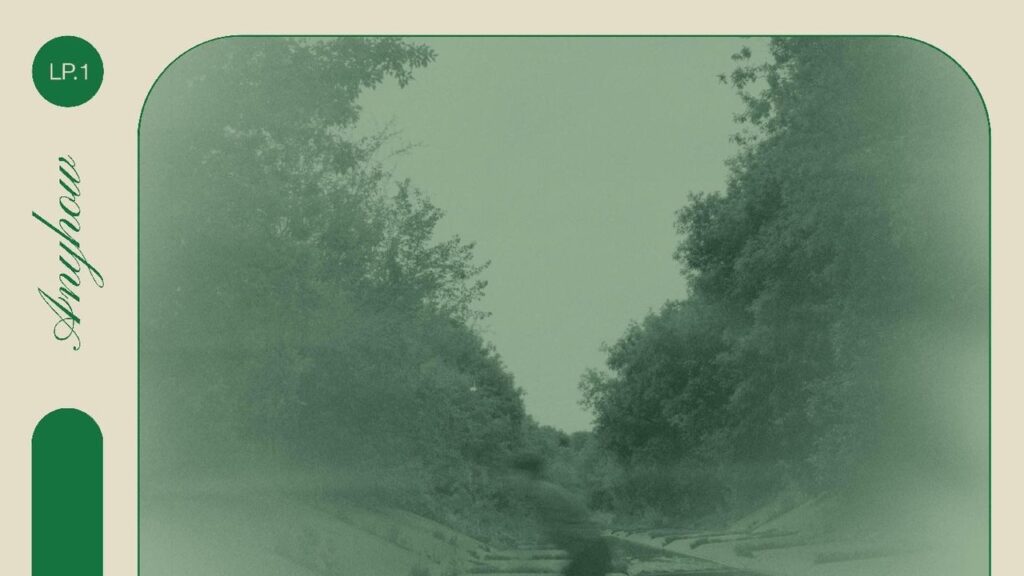
Anyhow, the solo debut from BADBADNOTGOOD multi-instrumentalist Leland Whitty, is like sleight of hand or a trick of the light. It’s a record that appears simultaneously small and ambitious, jazz and yet not. One one hand it’s a brief side project, featuring members of a shapeshifting jazz group known for these types of experiments; on the other, it builds on their previous releases without sounding like anything else in their catalog. You might compare it to Snoopy’s dog house or Doctor Who’s TARDIS, both famously bigger on the inside than out, full of psychedelic twists and turns as discombobulating as the Doctor’s time-traveling machine.
After working on several film scores (including the 2019 thriller Disappearance at Clifton Hill), Whitty wanted to make a record with a narrative focus. Anyhow emerged from voice notes and short loops that Leland, brother Lowell Whitty, and a trio of BADBADNOTGOOD bandmates past (Matthew Tavares) and present (Alexander Sowinski and Chester Hansen) built into full-formed songs. Leland plays the majority of instruments on the album, including guitar, flute, Wurlitzer, clarinet, violin, viola, saxophone, and synth. He also worked in a directorial role, guiding the collaborators to shift the songs’ rhythm and energy.
At times you can hear the little acorns of this album’s mighty oaks. “Svalbard” is built around a miniature flute loop that flutters in and out of focus like a bird on a misty morning. Anyhow isn’t particularly long (only 30 minutes) or laden with attention-grabbing features; its collaborators are subservient to the musical whole. But in its depth, tone, and quality it feels subtly epic, like a short film whose details linger in the imagination.
“Silver Rain” packs more imagination and melody into three cosmic, slightly discordant minutes than many albums manage in 40, its intimate, spooky detail reminiscent of Broadcast’s miniature epics or Caribou’s excursions into dream pop on Andorra. The song is a mosaic of soprano sax and flute, which wobble and break as if viewed under water against the brightened sunshine of an acoustic guitar. Serpentine chord changes, Hansen’s inquisitive bass, and a sprightly drum track from Sowinski reveal more depth on every listen. “Silver Rain” is so condensed it could easily triple its run time without overstaying its welcome, but there is something audacious about the way the song makes its point and gets out, with almost nothing in the way of repetition.
“Glass Moon” is similarly agile, refusing to sit still as it races through a mesmerizing series of chord changes, building brushed drums, upright bass, strings and saxophone to a surprisingly furious climax. “Awake” makes space for lustrous string arrangements; daubs of soprano, alto, and tenor saxophones; and a kaleidoscopic Rhodes piano solo, which Tavares delivers with economical dexterity. The title track illustrates the record’s chimerical feel: Lowell Whitty’s drums are so brilliantly loose it feels as if the whole album might drift away on a wave of beatific strings.
